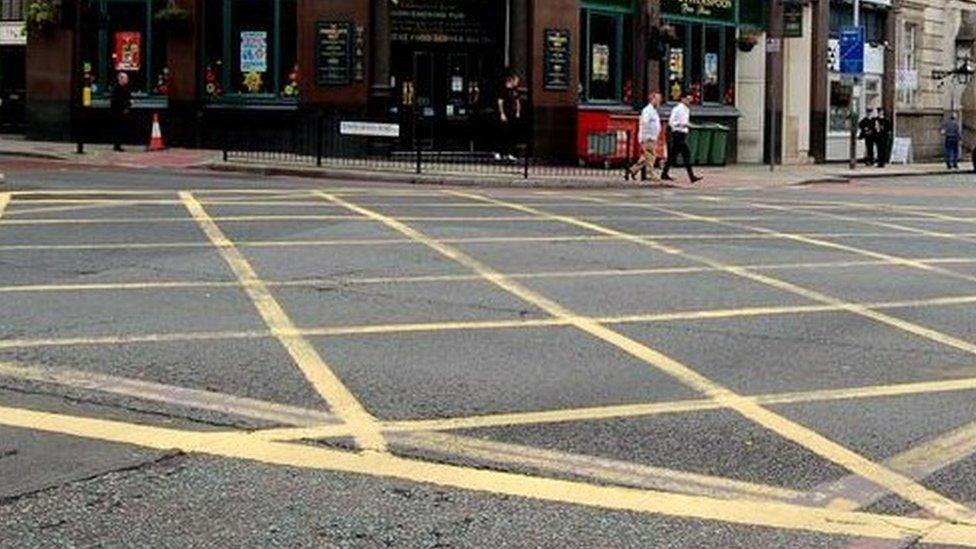Reading bus company inspiring move to public ownership
- Published
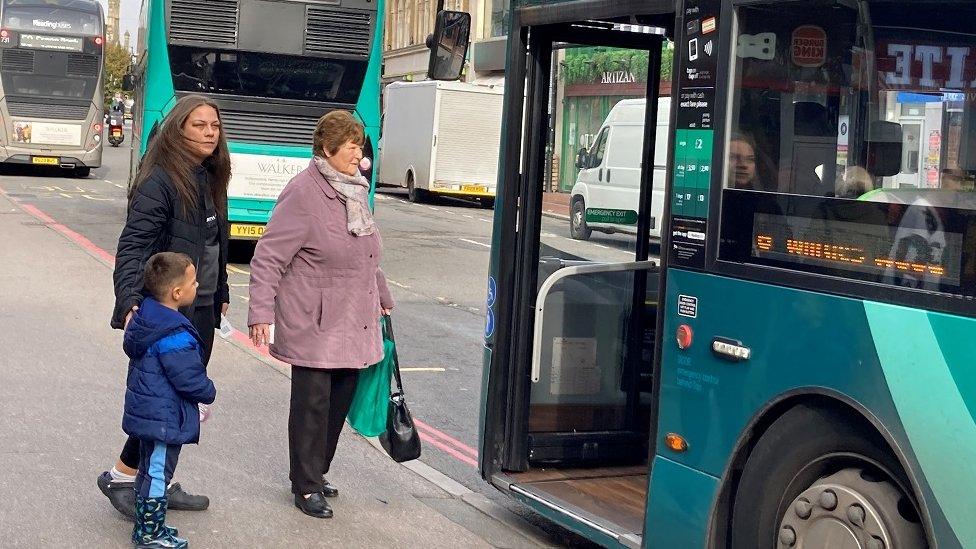
Reading Buses is owned by the borough council rather than a private operator
The mayor of a town that operates its own bus network says he is being inundated with requests for information from other local authorities.
Reading Buses is owned by the borough council rather than a private operator.
It is one of eight companies outside London under public ownership, meaning the council can set its own routes and fares without having to make a profit.
Money from commuter services also subsidises smaller less well-used routes.
Reading's Mayor and notional "head conductor" Tony Page said councils across the country are asking him how they can take back control of their local bus network.
As a municipally owned bus service, the council says Reading Buses can invest an additional £3m a year in the bus network, around 12-15% of its annual turnover, because it does not pay out dividends to private shareholders.
The borough council says extra money means better quality buses, one of the greenest fleets in the UK, and contributes to more people using the bus service.
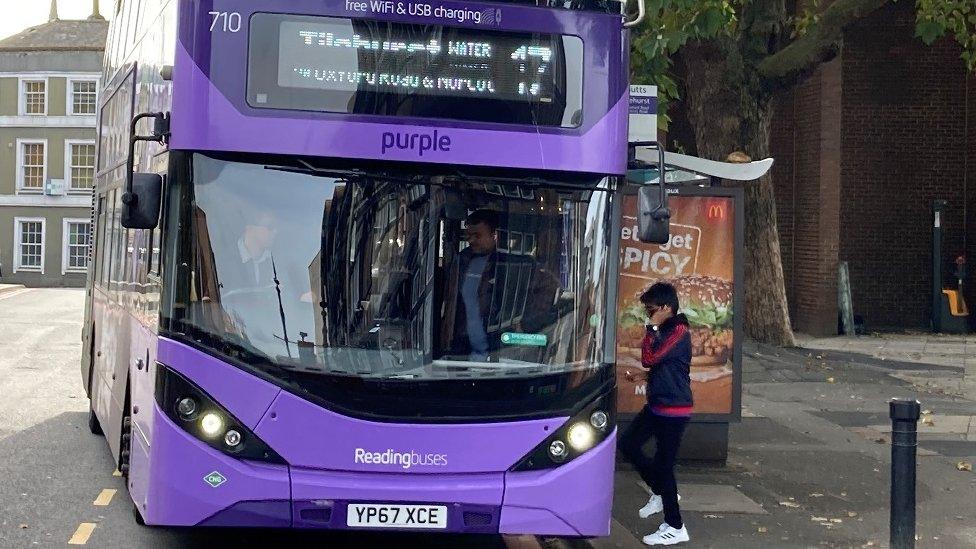
The borough council says without shareholders, Reading Buses can invest an additional £3m a year in the network each year
Reading Buses picked up their first passengers in the Victorian era, and more than 100 years later its fleet of some 150 multi-coloured buses now looks rather different.
Bus services were deregulated in 1986 allowing private companies to move into the market.
They invested millions more in services - although the policy's detractors say that came at a cost to passengers in rural areas, who are dependent on those less lucrative routes and found their services no longer existed.
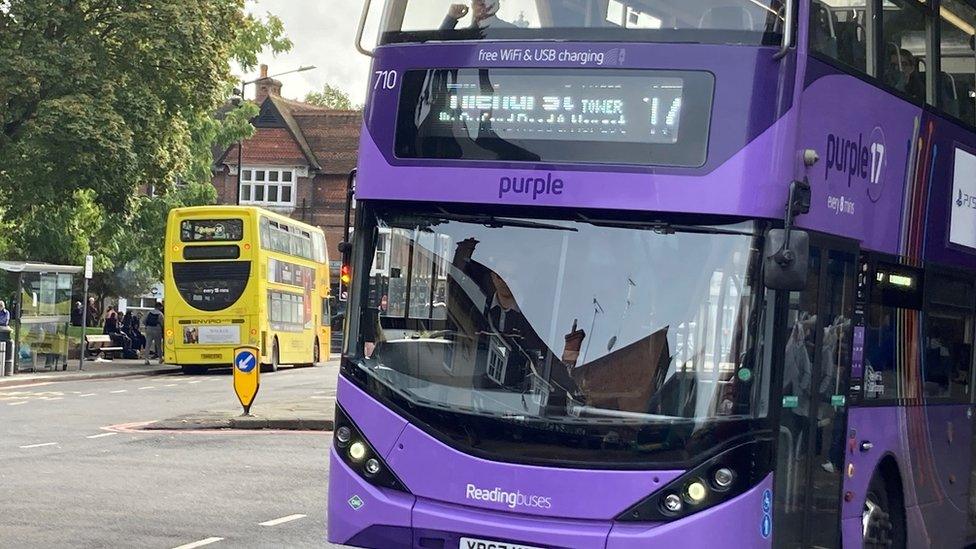
The company's fleet of brightly coloured buses serve routes in Reading and the surrounding area
Last year more than 2.8 billion bus journeys were made in England.
That's 1.3 billion fewer than before Covid and the government is keen to get more people out of cars and on to public transport.
In January it capped single bus fares at £2 until the end of 2024.
Reading Mayor Tony Page said while welcoming the cap "there are many parts of the country, particularly rural areas where the nearest bus is in a museum" and "they simply don't have those services".
"The government's resources are also needed to pump prime the establishment of bus services," he added.
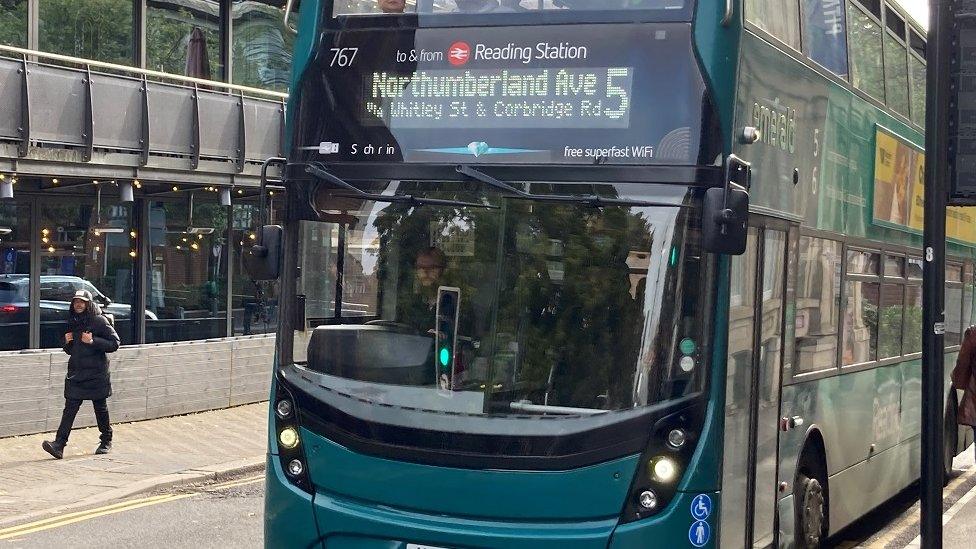
Reading's mayor says government investment is still needed to encourage more use of public transport
Scrapping the Manchester to West Midlands leg of HS2 at the beginning of October, Prime Minister Rishi Sunak said some of the billions of pounds saved would go towards extra bus services.
In recent weeks Reading has been joined by Greater Manchester in bringing local bus services back under local authority control and Merseyside is also looking to go down the same route.

Follow BBC South on Facebook, external, X, external, or Instagram, external. Send your story ideas to south.newsonline@bbc.co.uk, external.
Related topics
- Published17 February 2023
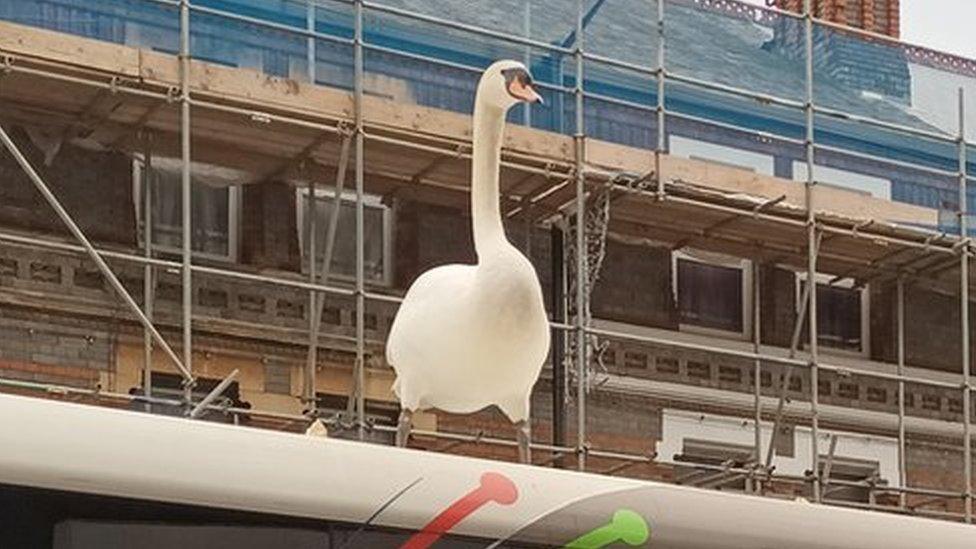
- Published19 May 2023
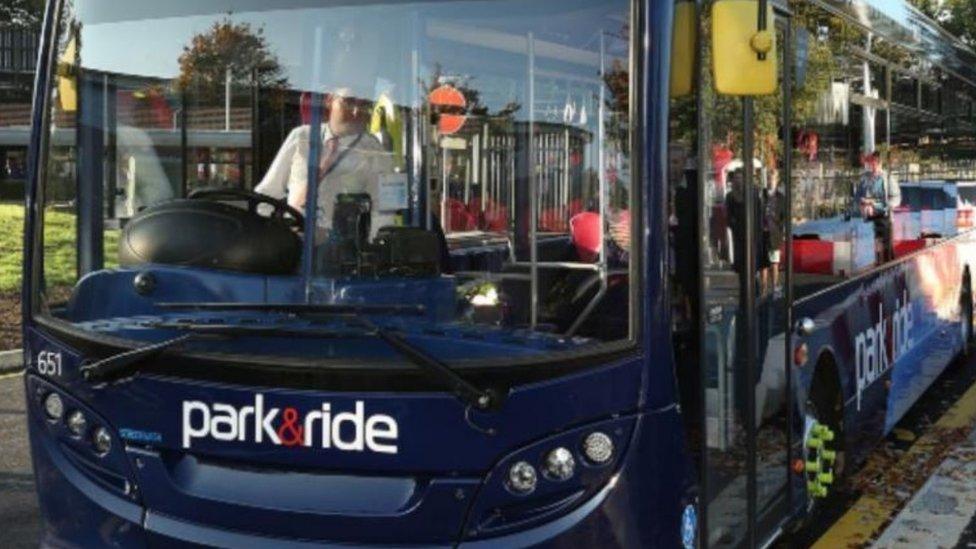
- Published17 August 2022
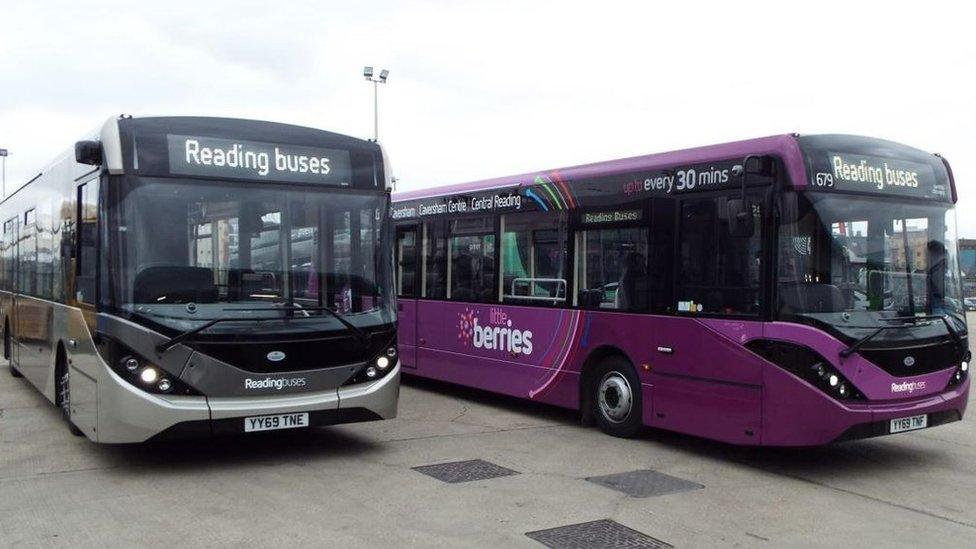
- Published6 August 2022
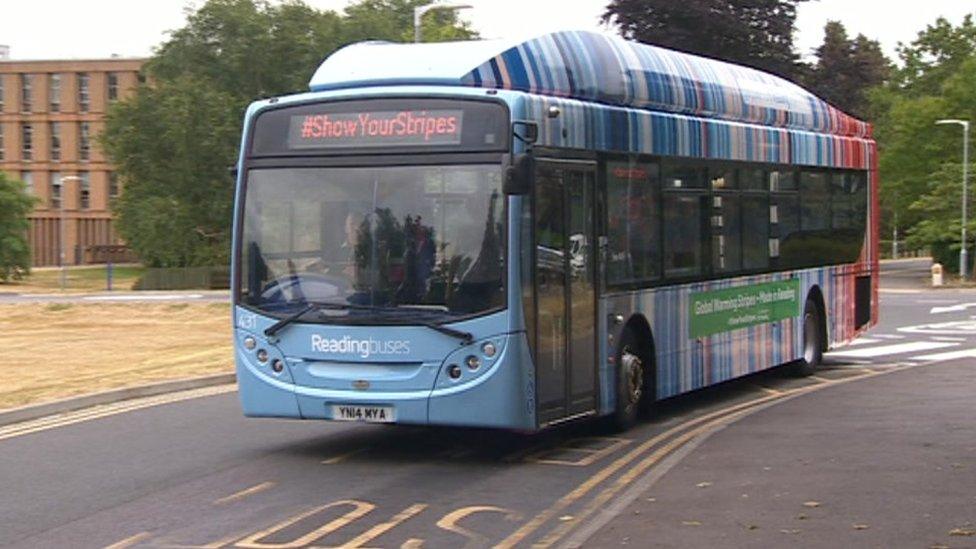
- Published12 May 2022
